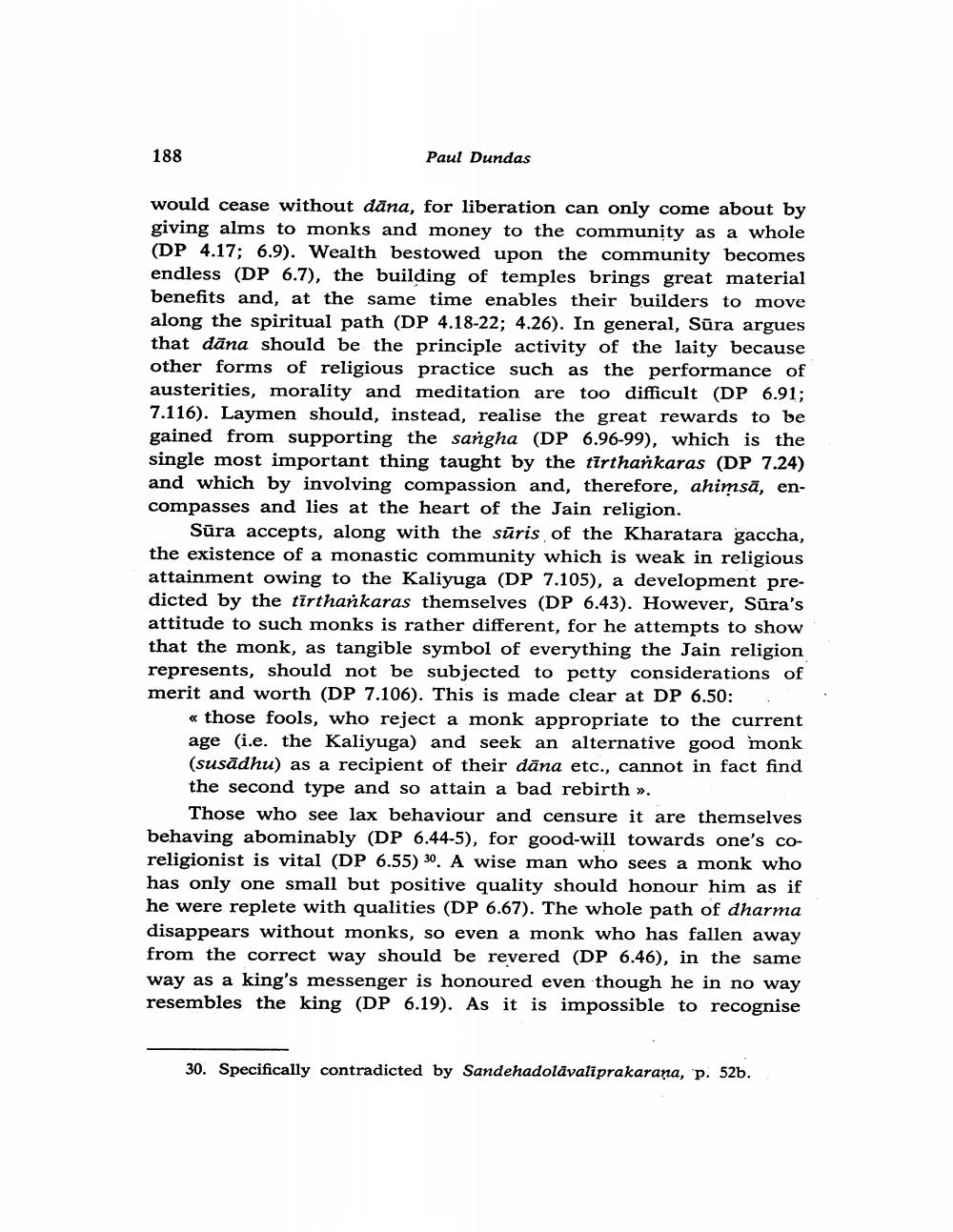________________
188
Paul Dundas
would cease without dāna, for liberation can only come about by giving alms to monks and money to the community as a whole (DP 4.17; 6.9). Wealth bestowed upon the community becomes endless (DP 6.7), the building of temples brings great material benefits and, at the same time enables their builders to move along the spiritual path (DP 4.18-22; 4.26). In general, Sūra argues that dāna should be the principle activity of the laity because other forms of religious practice such as the performance of austerities, morality and meditation are too difficult (DP 6.91; 7.116). Laymen should, instead, realise the great rewards to be gained from supporting the sangha (DP 6.96-99), which is the single most important thing taught by the tirthařkaras (DP 7.24) and which by involving compassion and, therefore, ahimsā, encompasses and lies at the heart of the Jain religion.
Sūra accepts, along with the sūris of the Kharatara gaccha, the existence of a monastic community which is weak in religious attainment owing to the Kaliyuga (DP 7.105), a development predicted by the tirthankaras themselves (DP 6.43). However, Sūra's attitude to such monks is rather different, for he attempts to show that the monk, as tangible symbol of everything the Jain religion represents, should not be subjected to petty considerations of merit and worth (DP 7.106). This is made clear at DP 6.50: .
« those fools, who reject a monk appropriate to the current age (i.e. the Kaliyuga) and seek an alternative good monk (susādhu) as a recipient of their dāna etc., cannot in fact find the second type and so attain a bad rebirth ».
Those who see lax behaviour and censure it are themselves behaving abominably (DP 6.44-5), for good will towards one's coreligionist is vital (DP 6.55) 30. A wise man who sees a monk who has only one small but positive quality should honour him as if he were replete with qualities (DP 6.67). The whole path of dharma disappears without monks, so even a monk who has fallen away from the correct way should be revered (DP 6.46), in the same way as a king's messenger is honoured even though he in no way resembles the king (DP 6.19). As it is impossible to recognise
.
30. Specifically contradicted by Sandehadolāvalīprakarana, p. 52b.




